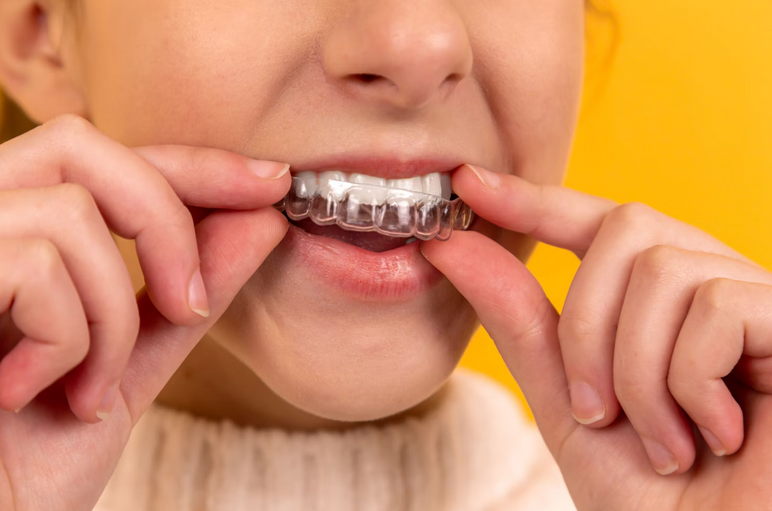Embarking on the journey to a straighter smile with Invisalign is an exciting step toward enhanced confidence and oral health. While these clear aligners are designed for comfort and discretion, they require some TLC to keep them in top shape. The better you care for your aligners, the more effective they’ll be in transforming your teeth. Plus, maintaining good hygiene not only enhances their clarity but also ensures that you’re on track for a successful treatment.
Ready to discover essential tips that will make managing your Invisalign experience easier? Let’s dive right in!
Establish a Daily Cleaning Routine
Every Dentist London will generally agree that creating a daily cleaning routine for your Invisalign aligners is crucial. Start by rinsing them with lukewarm water each morning. This simple step removes saliva and bacteria that can accumulate overnight. Next, use a soft toothbrush dedicated solely to your aligners. Avoid toothpaste, as it can be abrasive and cause scratches. Instead, opt for gentle soap or cleaner specifically designed for clear aligners. Make this cleaning ritual part of your daily habits—right after brushing your teeth or during other oral care routines. Consistency will keep your aligners fresh and clear throughout the day.
Rinse After Eating and Drinking

After enjoying a meal or a drink, it’s crucial to rinse your Invisalign aligners. Food particles and sugars can cling to the surface, leading to bacteria buildup. A quick rinse with water is all it takes. This simple step helps prevent stains and keeps your aligners fresh throughout the day. If you cannot brush immediately after eating, rinsing becomes even more important. It removes debris and reduces the risk of lingering odors.
Carrying a small bottle of water can make this routine easier when you’re out and about. Just take a few sips, swish around for a moment, and then spit it out if necessary. Remember that maintaining transparency in your aligners contributes significantly to their effectiveness. A little effort goes a long way toward ensuring they remain invisible and effective throughout your treatment journey.
Soak Regularly
Soaking your Invisalign aligners is a crucial step that often gets overlooked. Like any other dental appliance, they can accumulate bacteria and plaque over time. A simple soak can help keep them fresh. For the best results, use a specialized cleaning solution or denture cleaner. Avoid harsh chemicals that could damage the materials of your aligners.
Let them soak for about 15 to 30 minutes daily. This process not only cleans but also removes stubborn stains, keeping your aligners clear and invisible. After soaking, rinse them thoroughly under lukewarm water before putting them back in place. Regular soaking ensures you maintain both hygiene and comfort throughout your treatment journey. It’s an easy habit to integrate into your routine with significant benefits for oral health!
Store Properly

Storing your Invisalign aligners correctly is crucial for their longevity and effectiveness. When you’re not wearing them, always keep them in the case provided by your orthodontist. This keeps them safe from dirt, damage, and accidental loss. Avoid placing your aligners on napkins or random surfaces where they can easily be forgotten or mishandled. A dedicated storage space helps you stay organized and never misplace them.
If you are traveling, pack your case securely in an accessible spot. Remember to bring a cleaning solution to maintain hygiene on the go. Temperature matters too; avoid extreme heat or cold, as it can warp the plastic material. Proper care now will lead to better results down the line.
Maintain Oral Hygiene
Maintaining oral hygiene is essential when using Invisalign aligners. Clean teeth lead to a healthier mouth and ensure your aligners fit comfortably. Brush your teeth at least twice daily, especially after meals. This helps remove food particles trapped between your aligners and teeth. Use fluoride toothpaste for added protection against cavities. Flossing should not be overlooked, either. It removes plaque buildup that brushing might cause, keeping gums healthy during treatment.
Consider using an antibacterial mouthwash as well. It adds an extra layer of cleanliness, ensuring bad breath stays at bay while promoting oral health. Don’t forget to check for any signs of irritation or infection in your gums and cheeks caused by the aligners. Address these issues promptly; they’re easier to manage early on. Your smile deserves all the care you can provide!…




